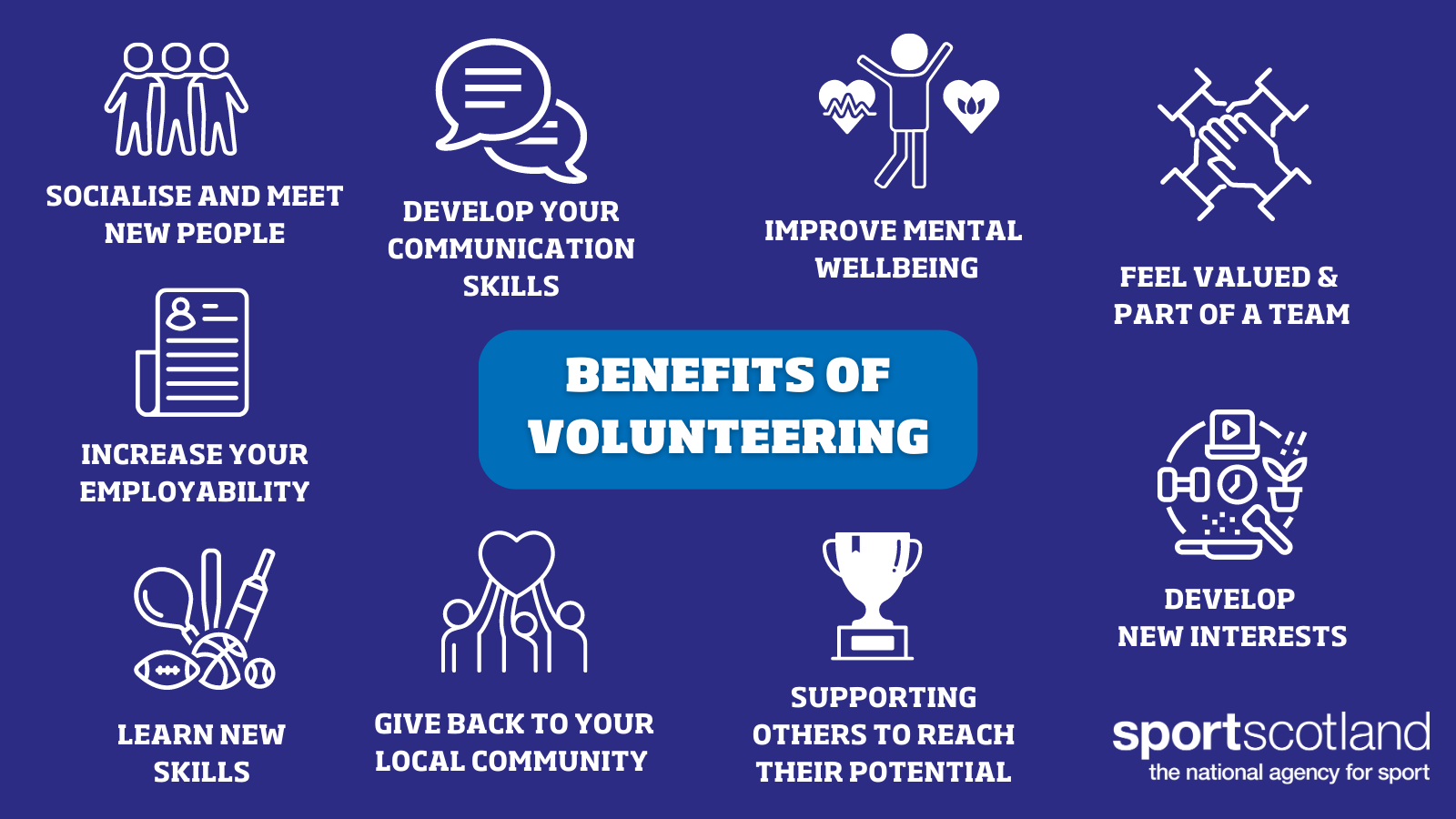Discover the crucial role and impact of volunteers in society, the importance of their commitment, and the financial implications of volunteer work in the Netherlands and beyond. Explore the ethical considerations and how a organization can better support these unsung heroes.

Image: Sports Schotland
The Unsung Heroes: The Role and Impact of Volunteers in Modern Society
Volunteering is a noble endeavor embraced by countless individuals worldwide, each driven by unique motivations. Whether it's retired individuals seeking continued societal engagement, people desiring a sense of belonging, or those passionate about improving the lives of the elderly or assisting the homeless, the reasons for volunteering are as diverse as the volunteers themselves. Many contribute by helping at sports canteens or engaging in other community-beneficial activities.
Is Volunteering Truly Non-committal?
The notion that volunteering is non-committal is a misconception. In reality, much volunteer work comes with significant obligations. Volunteers are often expected to adhere to schedules and perform assigned tasks diligently. From my observations, many volunteers approach their roles with the seriousness and commitment akin to a profession. They prioritize punctuality and operate under the principle of "doing what you say and saying what you do." Their dedication is widely appreciated, although there are occasional complaints about overly zealous volunteers whose fervor might overwhelm the beneficiaries.
The Growing Importance of Volunteers in Europe
Recently, I have been intrigued by the evolving roles and responsibilities of volunteers in our society. It is apparent that people take pride in contributing to their communities and often embrace additional challenging or responsible tasks. This trend is reflected in the increasing number of volunteers who are taking on more critical and responsible roles. Have you noticed this phenomenon too?
The Netherlands: Leading in Volunteering
To my surprise, I discovered that the Netherlands leads the European Economic Community (EEC) in the number of volunteers. These volunteers are genuine, giving much and taking little in return. This raises a pertinent question: How many paid positions have been replaced by volunteer roles in the Netherlands and globally, and who benefits from this shift? It's important to distinguish between the beneficiaries of volunteer services and those managing or owning the associated organizations.
Financial Implications for Organizations
In many cultural and healthcare institutions, volunteers play crucial roles, often resulting in significant cost savings. However, these savings are sometimes reallocated to the salaries of voluntary management boards. It seems paradoxical that directors' salaries continue to rise when their workforce consists mainly of volunteers. This situation prompts a critical question: Is there a limit to the deployment of volunteers, and who determines this?
Are Volunteers the Modern-Day Slaves?
The comparison may seem harsh, but it prompts necessary reflection: Are volunteers being exploited? While they are not subjected to the harsh conditions of historical slavery, it is crucial to consider where to draw the line. Many foundations and charitable institutions, not just in the Netherlands but globally, have private limited companies in their supply chain. These companies often siphon off profits quietly, despite foundations being legally prohibited from making a profit. Directors of such foundations are often employed by profit-allowed entities, sometimes owned by the directors themselves, leading to ethical and financial concerns.
Financial Discrepancies Affecting the Needy
One cannot ignore the substantial financial resources bypassing those in dire need due to these financial structures. This issue deserves serious consideration and action. Financial malpractices at various levels, from municipal assistance programs to broader economic policies, often divert funds intended for the vulnerable. Ensuring proper allocation and utilization of these funds is paramount.
The Impact of Budget Deficits
Every election cycle, budget deficits dominate discussions, evoking sympathy for government officials. However, much of the missing money likely exists within the system, misallocated or misused. Consider everyday instances of traffic violations, benefit fraud, or financial scams. The pervasive culture of overstatement of responsibilities to justify higher earnings exacerbates the issue. Do we scrutinize these actions, or do we look the other way?
Conclusion: Reflecting on the Role and Treatment of Volunteers
Volunteers are indispensable to our society, providing essential services and support. However, it is crucial to address the financial and ethical issues surrounding volunteer work. Organizations must ensure fair treatment and proper acknowledgment of volunteers' contributions, avoiding exploitation. By reflecting on these issues, we can better appreciate and support the vital role volunteers play, ensuring that their efforts benefit society as intended.











